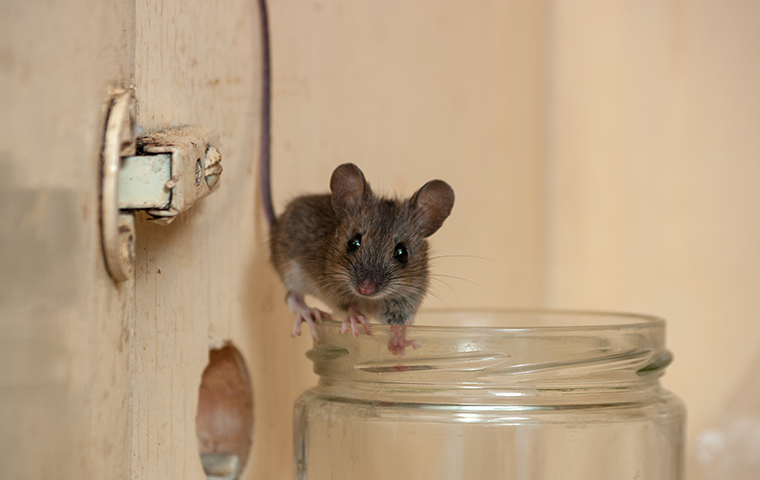In the bustling world of Airbnb hosting, maintaining a clean and welcoming environment is paramount. As a host, you want to ensure that every guest leaves with a five-star experience. However, unexpected guests in the form of rodents can quickly turn a pleasant stay into a nightmare. This Airbnb rodent control guide aims to equip you with effective strategies to keep your property rodent-free.
Rodents are not just a nuisance; they can pose serious health risks, damage property, and tarnish your reputation as a host. Whether you're dealing with a current infestation or looking to prevent future issues, it's crucial to understand the steps necessary to manage and control rodent populations effectively.

Understanding the Threat: Why Rodent Control is Essential
Rodents, including mice and rats, are notorious for their ability to invade homes and rental properties. They are adept at finding food, water, and shelter, which makes them resilient pests that can be challenging to eliminate. The presence of rodents can lead to health risks such as the spread of diseases like Hantavirus and Salmonella. Moreover, rodents are known to cause structural damage by gnawing on wires, insulation, and wood.
As an Airbnb host, it's your responsibility to provide a safe and healthy environment for your guests. A single sighting of a mouse or rat can result in negative reviews and lost bookings. Therefore, proactive rodent control is not just about pest management but also about maintaining your reputation and revenue.
Initial Steps: Assessing Your Property
The first step in your rodent control journey is to assess your property for potential entry points and signs of infestation. Common entry points include gaps around doors, windows, vents, and utility lines. Conduct a thorough inspection of both the interior and exterior of your property to identify these vulnerabilities.
Look for signs of rodent activity such as droppings, gnaw marks, and nests. Pay special attention to areas where food is stored, as these are prime targets for hungry rodents. Identifying these signs early can help you take swift action before an infestation escalates.
Implementation: Rodent-Proofing Your Airbnb
Once you've assessed your property, it's time to implement measures to prevent rodents from entering. Start by sealing all potential entry points. Use materials like steel wool, hardware cloth, and weather stripping to block gaps and cracks. Ensure that doors and windows close securely and consider installing door sweeps for added protection.
Maintain a clean environment to deter rodents. Regularly clean up food crumbs, store food in airtight containers, and ensure trash bins are sealed and emptied frequently. Landscaping also plays a role in rodent control. Keep vegetation trimmed and remove debris that could serve as nesting sites.
Natural Deterrents and Traps
For hosts who prefer eco-friendly solutions, consider using natural pest repellents like essential oils such as peppermint, which can deter rodents due to their strong scent. Additionally, setting traps in areas with high rodent activity can help control the population. Opt for humane traps if you're looking to capture and release rodents without harm.
Professional Help: When to Call the Experts
In some cases, a rodent infestation may be too severe to handle on your own. If you've tried various methods without success, it may be time to call a professional pest control service. Experts have the knowledge and tools necessary to tackle large infestations effectively.
When choosing a pest control service, look for providers with experience in short-term rental properties. They should offer a comprehensive approach that includes inspection, treatment, and follow-up visits to ensure the problem is fully resolved.
Maintaining a Rodent-Free Environment
After addressing any rodent issues, maintaining a rodent-free environment requires ongoing vigilance. Regularly inspect your property for new entry points or signs of rodent activity. Keep up with cleaning and maintenance routines, and stay informed about effective pest control methods.
For more tips on pest management, check out our Airbnb pest control checklist, which offers a detailed guide to keeping your property free from various pests.
Conclusion: Prioritizing Safety and Satisfaction
As an Airbnb host, your top priority is ensuring that your guests have a safe and enjoyable stay. By following the strategies outlined in this Airbnb rodent control guide, you can protect your property from rodents and uphold your reputation as a top-tier host.
Remember, proactive measures are key to preventing infestations. Regular inspections, cleanliness, and professional help when needed will keep your Airbnb welcoming and rodent-free. For further advice on maintaining a pest-free property, explore more resources on preventing Airbnb bed bugs.

FAQ
What are common signs of a rodent infestation?
Common signs include droppings, gnaw marks, nests, and the presence of dead rodents. You may also hear scratching or scurrying sounds, especially at night.
How can I prevent rodents from entering my Airbnb?
Seal all entry points, maintain cleanliness, and use natural deterrents. Regular inspections and prompt action can prevent infestations.
When should I call a professional pest control service?
If you notice persistent rodent activity despite your efforts, it's best to call professionals who can provide a comprehensive solution.
